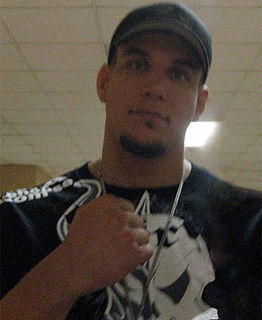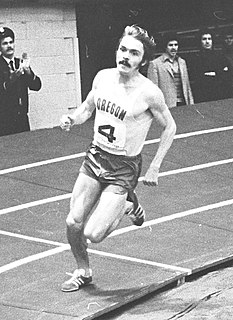A Quote by Daniel Yergin
People always underestimate the impact of technology. To give you an example: In the 1970s the frontier for offshore development was 200 meters, today it is 4,000 meters.
Quote Topics
Related Quotes
The Aedes aegypti mosquito, which spreads dengue fever and yellow fever, has traditionally been unable to survive at altitudes higher than 1,000 meters because of colder temperatures there. But with recent warming trends, those mosquitoes have now been reported at 1,240 meters in Costa Rica and at 2,200 meters in Columbia. Malaria-bearing mosquitoes, too, have moved to higher elevations in central Africa, Asia, and parts of Latin America, triggering new outbreaks of the disease.
Adventure has to do with private, personal experiences. But, the possibilities, there are millions of unclimbed mountains - I have seen in the Eastern part of Tibet, mountains 6,000-6,500 meters high, vertical walls twice as tall as the Eiger... but nobody is going there, because they aren't 8,000-meter peaks.
(On winning the 800 meters in front of the home fans) I was really excited to come back here. Of course you are always a little nervous because you never know how the race is going to unfold, plus it is the first one of the season as well. I was really excited to come out and perform today. I give special thanks to Mario Sategna and The University of Texas for all of their support.


































